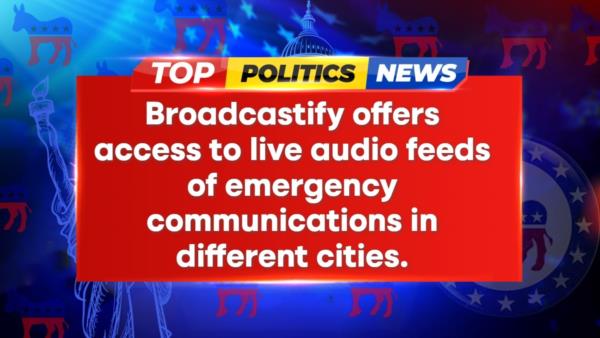
Public Safety Agencies Encrypt Radio Channels to Protect Privacy and Safety
In recent years, there has been a trend among major cities across the United States to encrypt their emergency public radio channels. This move comes as a response to concerns about oversharing private civilian information with a wider audience. While platforms like Broadcastify have allowed the public to easily access live audio feeds from police, fire, EMS, aircraft, marine, and amateur radio communications, questions regarding the privacy and safety of individuals have prompted some cities to take action.
Cities including Denver, San Francisco, San Diego, Baltimore, Chicago, New York, and Sioux Falls have decided to encrypt their radio channels to prevent the dissemination of personal details such as names, addresses, and phone numbers to the general public. By encrypting these channels, only authorized emergency professionals will be able to access crucial information about urgent matters in real time. The concern is that sensitive information, such as mental health issues or ongoing domestic incidents, could be broadcasted, potentially compromising the privacy and safety of individuals involved.
While police scanners have historically helped the public identify potential dangers in their communities, the widespread broadcasting of personal details raises ethical questions. Should a person's private matters, such as their mental health struggles or relationship issues, be publicly available through radio channels meant to uphold public safety? Critics argue that this level of exposure may discourage individuals from seeking help and may infringe upon their right to privacy.
However, it is important to note that most public safety agencies already encrypt highly sensitive information, such as SWAT team operations and surveillance activities, or rely on alternative communication methods like cell phones to ensure that this information stays private and secure. Routine dispatch operations, on the other hand, are typically left unencrypted to allow the public to monitor the day-to-day activities of their local public safety agencies.
While encryption provides a level of protection for personal information, it also limits the public's oversight role in monitoring the actions of public servants. Finding the right balance between privacy and public safety is crucial. Broadcastify, a platform that facilitates access to live audio feeds, has seen some cities, including Chicago and Baltimore, provide delayed live audio feeds to the public, recognizing the benefits of community engagement and transparency.
As this trend toward encryption continues, concerns arise about potential hesitancy on the part of individuals who may be in distress but fear exposing their situation to a wider audience. The goal should be to ensure that individuals feel confident and comfortable reaching out for help when needed, without the fear of judgment or unwanted attention.
In conclusion, the encryption of emergency public radio channels reflects the efforts of cities to protect the privacy and safety of individuals while upholding the overall transparency and accountability of public safety agencies. Balancing the need for privacy with the necessity of public oversight will remain an ongoing challenge as technology continues to evolve in the realm of communication and information sharing.







